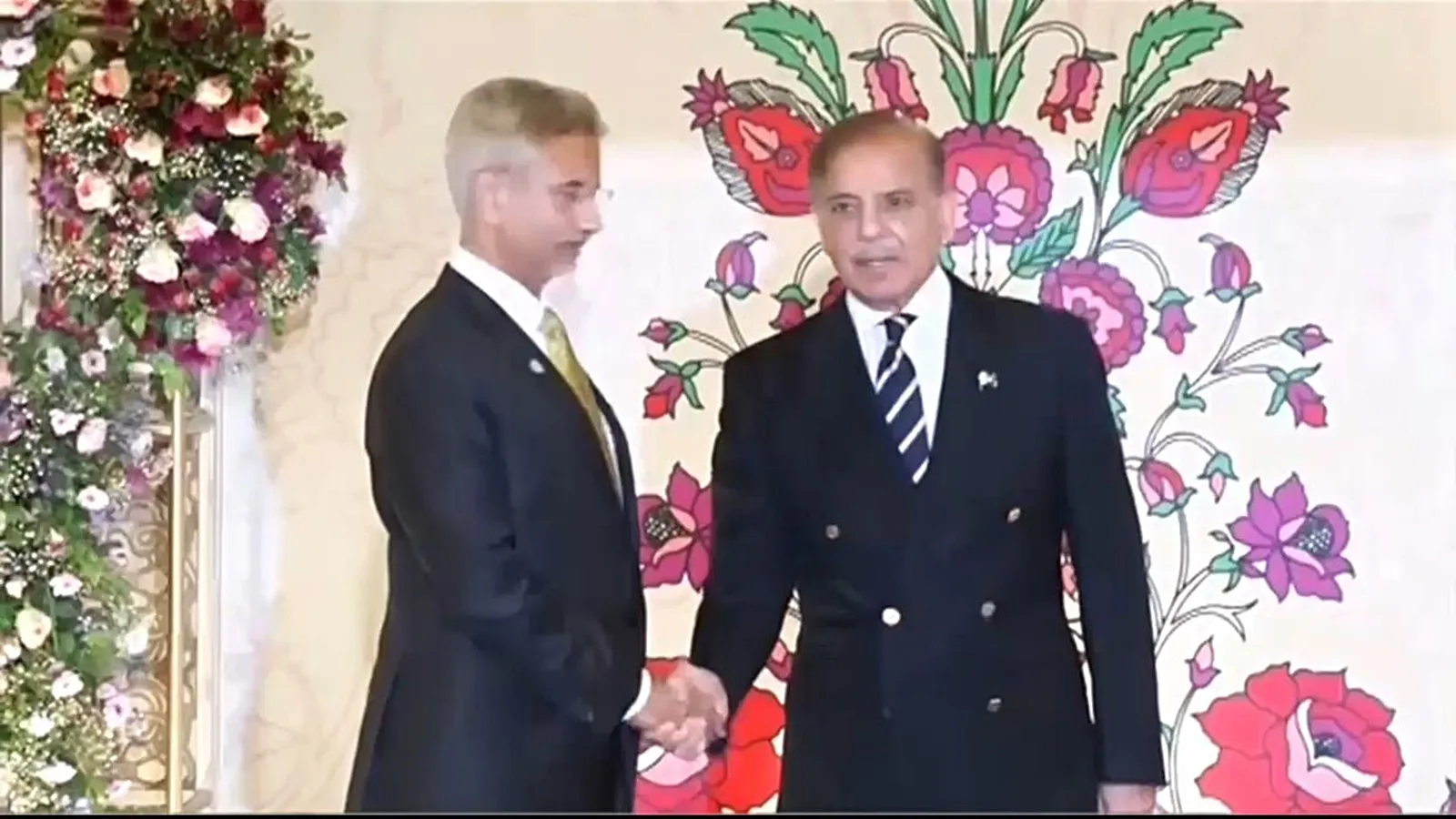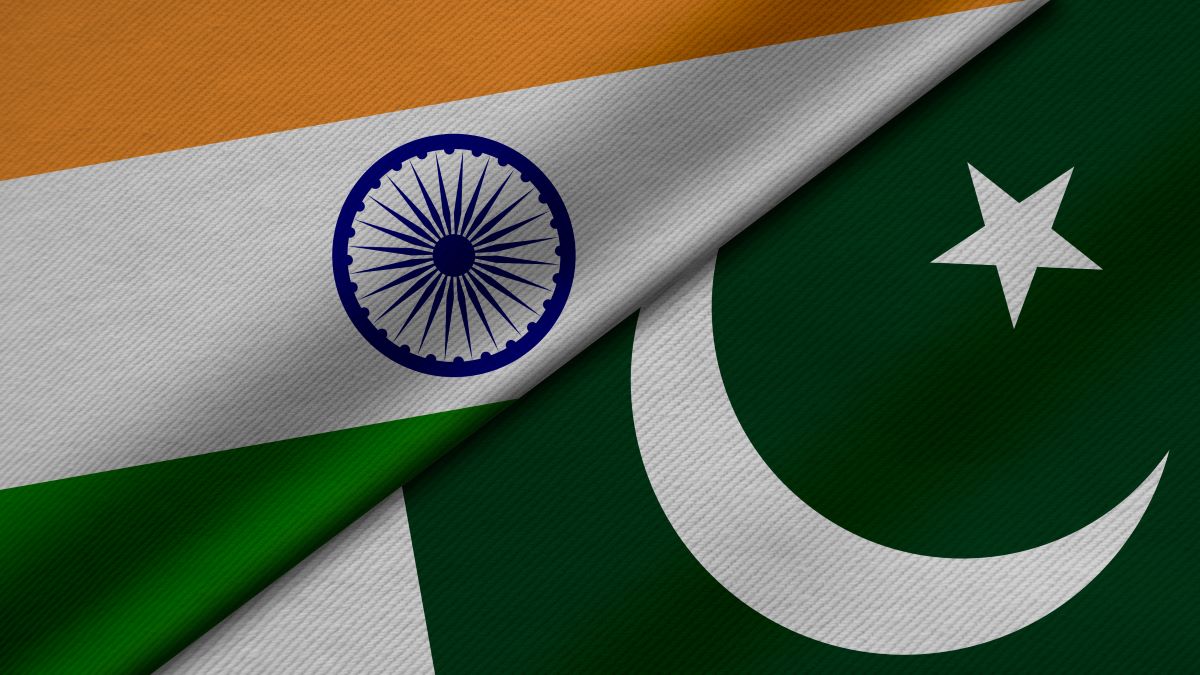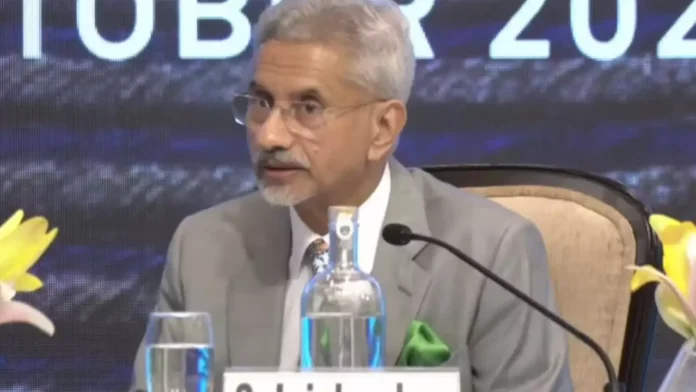In a rare diplomatic interaction, External Affairs Minister S. Jaishankar and Pakistan PM Shehbaz Sharif exchanged pleasantries during the Shanghai Cooperation Organisation (SCO) dinner in Islamabad. This brief but significant meeting marked the first high-level interaction between India and Pakistan in years, amidst strained relations over issues such as cross-border terrorism and the Kashmir conflict. As both nations navigate this complex political landscape, Jaishankar’s visit to Pakistan for the SCO summit signals a possible recalibration of diplomatic strategies.
Jaishankar, Pakistan PM Sharif’s First Interaction in Years: What It Means for Diplomatic Relations
The brief handshake and exchange of words between Jaishankar and Pakistan PM Shehbaz Sharif at the SCO dinner drew attention, as it was the first time in almost a decade that such a high-level exchange had occurred. This interaction comes in the context of India’s participation in the SCO summit, a platform that aims to foster political, economic, and security cooperation among regional powers like China, Russia, and India.
While the gesture was cordial, it underscores the ongoing diplomatic tension between India and Pakistan, with little movement toward resolution on key issues such as terrorism and territorial disputes. The question remains: can this interaction lead to any meaningful progress?

Pakistan PM Shehbaz Sharif Welcomes Jaishankar at the SCO Summit: Symbolism or Substance?
Pakistan PM Shehbaz Sharif welcomed the leaders from all SCO nations, including Jaishankar, during the formal dinner. However, the Indian foreign minister’s visit was not expected to result in any bilateral talks, as both countries had ruled out direct meetings. This lack of formal dialogue reflects the continued strain between the two neighbors, who have been at odds since the Pulwama attack and the subsequent Balakot airstrikes in 2019.
Despite the frostiness in relations, the symbolic nature of Jaishankar’s participation in the SCO summit cannot be overlooked. His presence signifies India’s commitment to multilateral engagement, even with countries like Pakistan, where diplomatic tensions run high.
Historical Context: Jaishankar’s Visit and the Complex India-Pakistan Relationship
This is the first visit by an Indian foreign minister to Pakistan in nearly nine years, with the last being Sushma Swaraj’s trip in 2015. Since then, the relationship between India and Pakistan has deteriorated, particularly after India’s abrogation of Article 370, which revoked the special status of Jammu and Kashmir. Pakistan PM Shehbaz Sharif and his government have consistently raised the issue of Kashmir on international platforms, deepening the divide.
The visit of Jaishankar to Pakistan for the SCO summit is seen as a significant diplomatic decision by India, even though both countries have made it clear that no bilateral talks will take place. This highlights the delicate balance between maintaining diplomatic presence in multilateral forums and addressing unresolved bilateral issues.

Why Jaishankar and Pakistan PM Sharif Did Not Engage in Bilateral Talks
Despite their brief interaction, there was no formal dialogue between Jaishankar and Pakistan PM Shehbaz Sharif. This is largely due to India’s firm stance on cross-border terrorism, which remains a key issue in the bilateral relationship. India has consistently maintained that normal relations with Pakistan cannot be restored until Islamabad takes decisive action against terrorist groups operating from its soil.
For Pakistan, the Kashmir issue remains a non-negotiable point of discussion. Under Pakistan PM Shehbaz Sharif, the government has continued to push for international intervention on Kashmir, a stance that has only fueled the diplomatic rift with India. The lack of any bilateral meetings during the SCO summit reflects these entrenched positions.
Security Measures in Pakistan as Jaishankar, Pakistan PM Attend SCO Summit
Strict security measures were in place in Islamabad during the SCO summit, with authorities deploying over 9,000 personnel, including Pakistan Army, intelligence agencies, and Frontier Corps, to ensure the safety of the foreign delegations. Given the tense political climate and the presence of high-level officials like Jaishankar and Pakistan PM Shehbaz Sharif, security was a top priority.
The heavy security presence underscores the importance Pakistan attaches to hosting the SCO summit and its efforts to project stability and control amid domestic political challenges. At the same time, the security measures highlight the ongoing concerns about terrorism and extremism, issues that have long plagued the India-Pakistan relationship.
Pakistan PM Shehbaz Sharif’s Diplomatic Role in the SCO Summit: Rebuilding Ties or Maintaining Status Quo?
As Pakistan PM, Shehbaz Sharif played a central role in welcoming regional leaders to the SCO summit. While his interactions with Jaishankar were limited to pleasantries, the summit provided an opportunity for Pakistan PM to showcase his country’s commitment to regional cooperation. However, given the strained relations with India, it remains to be seen whether Pakistan will use platforms like the SCO to mend ties or simply maintain the status quo.
For Jaishankar, attending the SCO summit without engaging in bilateral talks with Pakistan PM Shehbaz Sharif highlights India’s careful diplomatic balancing act. On the one hand, India is committed to engaging with its regional partners, but on the other, it remains firm on its demand for action against terrorism emanating from Pakistan.
What the Future Holds: Can Jaishankar’s Presence Change India-Pakistan Dynamics?
The presence of Jaishankar in Pakistan for the SCO summit is a significant diplomatic moment, but it may not lead to immediate changes in India-Pakistan relations. The deep-rooted issues, including cross-border terrorism and the Kashmir conflict, continue to be major stumbling blocks. However, the participation of both India and Pakistan in the SCO indicates that there is at least a willingness to engage in multilateral forums, if not bilaterally.
For the relationship to improve, both sides will need to address the underlying issues directly. Pakistan PM Shehbaz Sharif and Jaishankar briefly meeting at the summit may not signal a breakthrough, but it keeps the door open for future diplomatic engagement.
Conclusion: Jaishankar and Pakistan PM Shehbaz Sharif’s Interaction Marks a Step Forward, But Challenges Remain
While the brief interaction between Jaishankar and Pakistan PM Shehbaz Sharif at the SCO summit may seem like a small step, it is a reminder of the complex and often tense relationship between the two countries. The absence of bilateral talks underscores the deep mistrust and the significant hurdles that still need to be overcome. However, platforms like the SCO provide an opportunity for both nations to engage at a multilateral level, keeping open the possibility of dialogue in the future.
As long as cross-border terrorism and the Kashmir issue remain unresolved, the relationship between India and Pakistan will likely remain strained. For now, the interaction between Jaishankar and Pakistan PM Shehbaz Sharif is more symbolic than substantive, but it signals that diplomatic channels, however limited, remain open.

